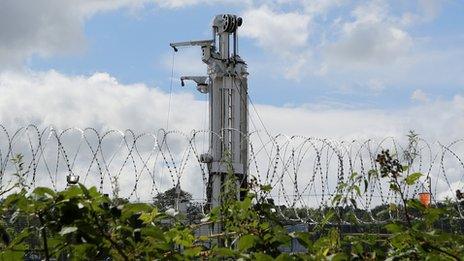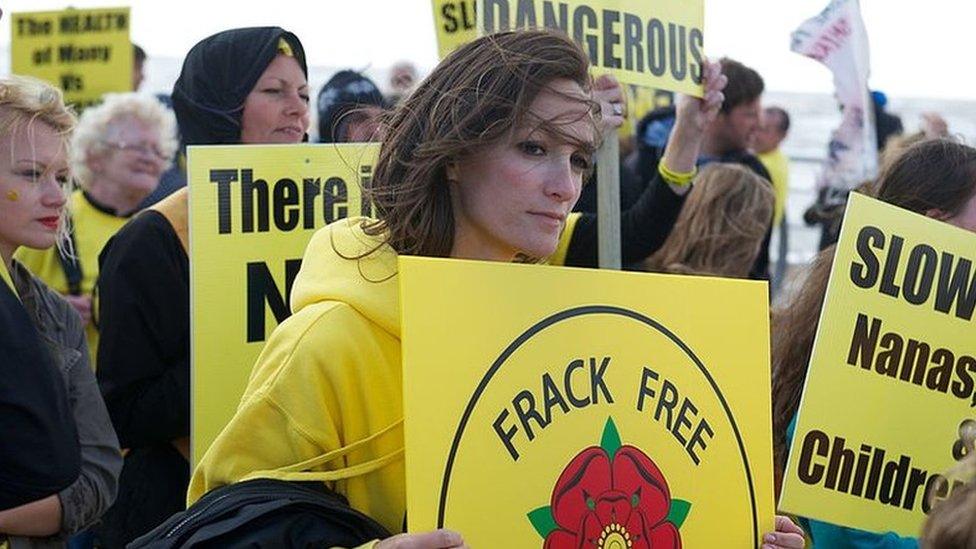Does fracking affect the water supply?
- Published
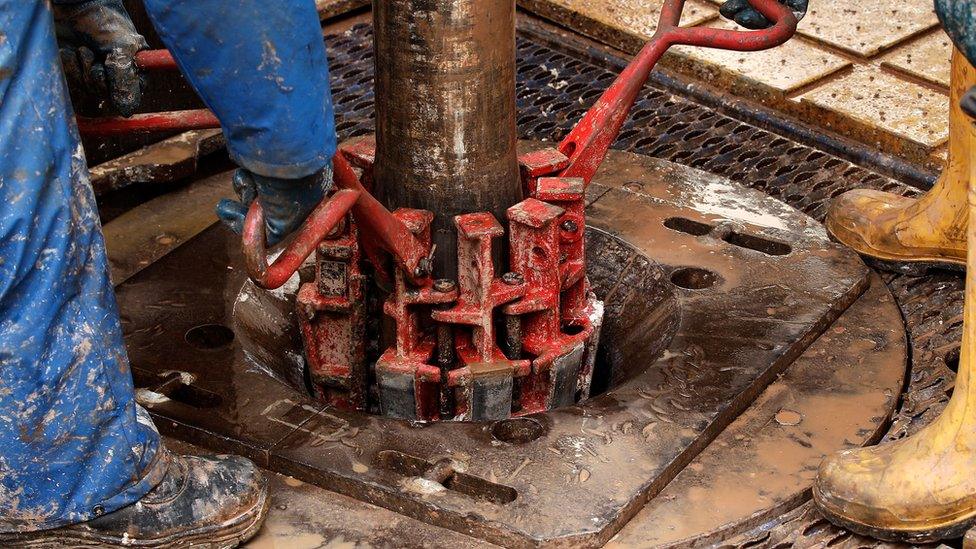
Fracking can contaminate water supplies if it is not done properly, because the fracking fluid injected into rock to enable gas to be released often contains chemicals.
The problem should not occur, as fracking typically involves drilling more than a mile underground - far deeper than the water-bearing rocks (aquifers) from which we get our water supplies.
But another possibility of contamination occurs where the drill hole goes through the water-bearing rock.
If the borehole is not properly cased to stop leaks, the fracking water can escape into the aquifer.
This happened a lot in the early days of fracking in the USA.
Other problems can occur if the frackers drill horizontally too close to water-bearing rocks.
This is now considered bad practice, although it also happened in the USA, where small risk-taking companies pioneered fracking techniques before big operators took over.
Some areas have complained about high levels of the carcinogen benzene in underground water supplies as a result. In the UK, the Environment Agency says only chemicals non-toxic at small concentrations may be used.
The other possibility of pollution is when the water, which is mixed with chemicals and sand for the fracking process, comes back to the surface. It can be contaminated with heavy metals and radioactivity.
This wastewater needs to be contained in tanks before being disposed of or - preferably - cleaned up to re-use for more fracking.
The UK government has decided that with proper regulations, contamination of water from shale gas production should be avoided - and permission granted to start fracking.

Why Roger wrote this article:
We asked readers to send questions as the government gave the go-ahead to fracking in Lancashire.
The most popular questions were in relation to water, and Tim Glover asked: "Does fracking affect the water supply?"

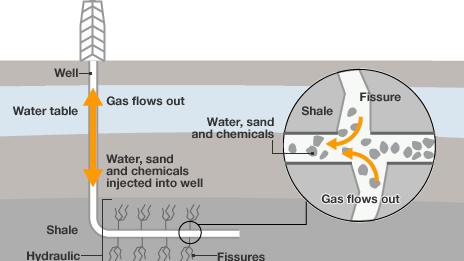
How fracking works.
Fracking has long been a controversial issue.
In 2011, all fracking was suspended in the UK after it was believed to have caused earthquakes near Blackpool.
The ban was lifted in 2012, but campaigners have continued to voice their opposition.
Pollyanna Steiner, from Friends of the Earth, said: "Fracking goes against everything we need to do to tackle climate change.
"The government must end its fixation with dirty fossil fuels and focus instead on harnessing the UK's huge renewable energy resource."
Communities Secretary Sajid David, who approved the plans for fracking at the Preston New Road site, at Little Plumpton, Lancashire, said the shale gas industry would support thousands of jobs and reduce the UK's reliance on energy imports.
Follow Roger on Twitter @rharrabin
- Published6 October 2016
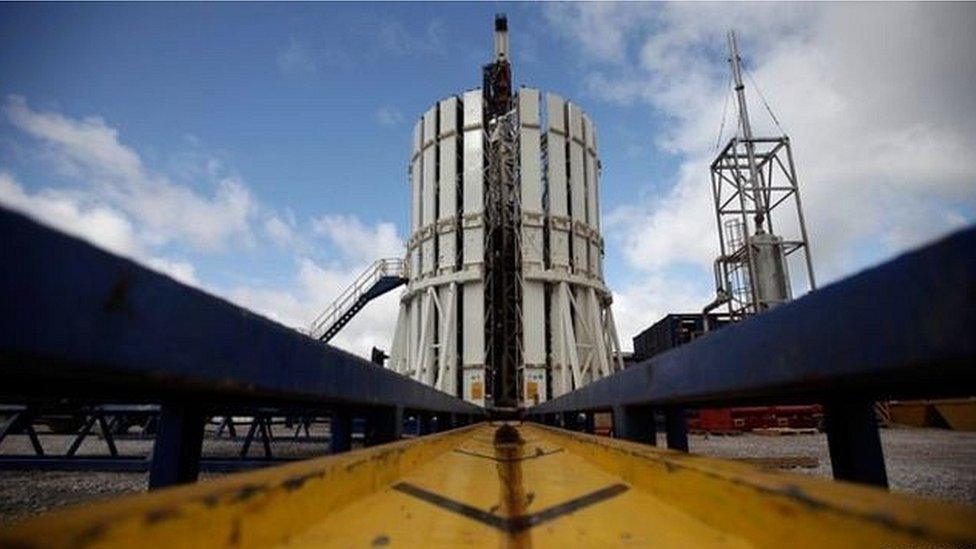
- Published6 October 2016
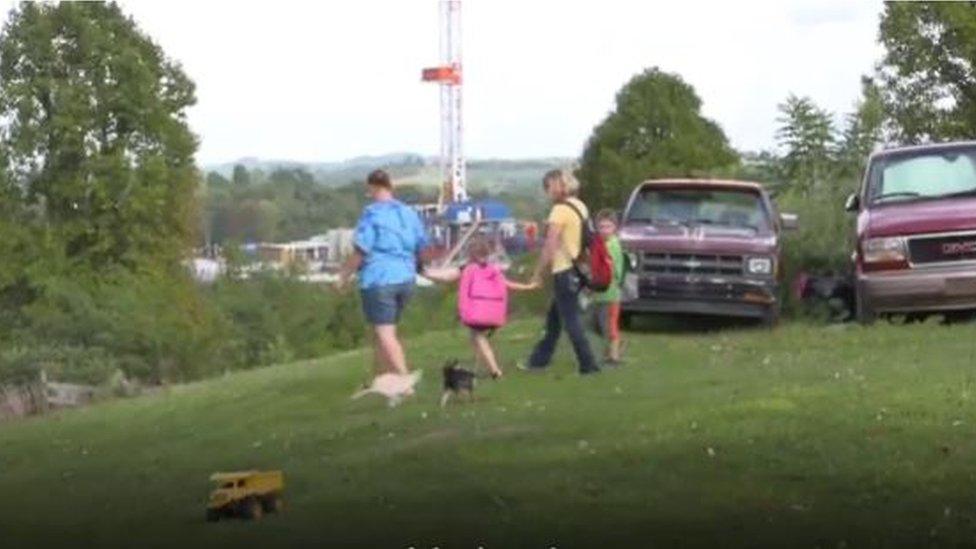
- Published3 July 2014
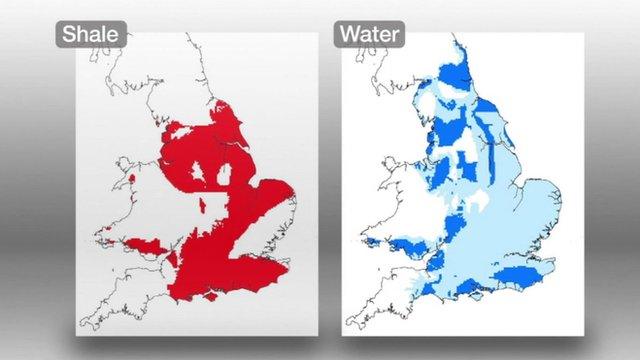
- Published16 August 2013
